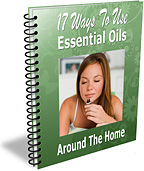
Essential Oil FAQs
Here are the answers to some of the most frequently asked questions that we regularly receive. Some need answering in some depth in order to present you with all the facts, so in these instances they have been linked to other pages where you will find the full story. Just use your 'Back' button to return to this page after reading.
If you are seriously interested in aromatherapy and would like to learn more we would recommend you purchase a good book on the subject. You will be well rewarded for your investment.
Frequently asked questions
- Have your essential oils or products been tested on animals?
- Why is quality so important with essential oils?
- What is the difference between an 'aromatherapy oil' and an 'essential oil'?
- What is the best way to store essential oils?
- How long do essential oils last?
Have your essential oils or products been tested on animals?
Absolutely not. We are Cruelty Free International (previously known as British Union for the Abolition of Vivisection or BUAV) approved manufacturers, therefore the entire Quinessence Aromatherapy Collection manufactured without causing any cruelty to animals. In addition, all our skin care and hair care products contain only vegetable derived ingredients - we will never use any animal ingredients. Read more about our animal testing policy.
Why is quality so important with essential oils?
To obtain textbook results in aromatherapy it is vital that only the very finest quality pure essential oils are used at all times. Cheaper, inferior quality essential oils deliver unpredictable results meaning ultimately you will have wasted your precious money, rather than saving any. At best nothing at all will happen - in other words you will not receive any benefits, and at the very worst you may have an allergic reaction to the oil and experience skin irritation, sensitisation, or other side effects.
This is typically because the essential oil has been adulterated with a synthetic chemical component, or perhaps because it is entirely synthetic. Unscrupulous traders and dealers will often 'stretch' expensive oils by adding cheap synthetics to them to make the product more profitable for themselves. This can cause problems for unsuspecting customers who then attempt to use these oils in aromatherapy - sometimes with disastrous results. Many people are allergic to synthetic compounds, hence the move to 'fragrance-free' cosmetics some time back.
Of course not everyone is sensitive to synthetic or adulterated oils so the problem should not be exaggerated, but it is still unethical and dishonest to sell an adulterated or synthetic oil under the pretence that it is a pure and natural essential oil. After all, you are paying for something that you are not getting. Synthetic or adulterated oils contain little or no therapeutic qualities and generally do not work in aromatherapy.
To learn much more about this very important subject, we have a dedicated page that explains all about essential oil quality.
What is the difference between an 'aromatherapy oil' and an 'essential oil'?
An 'aromatherapy oil' is usually a 2% dilution of an essential oil in 98% almond or grapeseed oil which is usually extremely poor value for money. In reality, this 'Aromatherapy Oil' is just a massage oil presented in a 10ml bottle that looks exactly like the ones normally containing undiluted pure essential oil. You could buy exactly the same product in a 50ml (5 times as much!) bottle of massage oil from a reputable supplier for only a fraction more money!
On the other hand, essential oils are undiluted products that have been extracted from flowers, herbs, leaves, grasses, roots, woods, barks, spices, fruits or gum. Newcomers to aromatherapy experience a great deal of confusion over this because high street shops often sell 'aromatherapy oils' that do not inform clearly on the label precisely what is in the bottle. Therefore it is assumed to be an essential oil, when of course it is not. Very misleading, and very expensive.
When you are purchasing essential oils, as with most things in this life, you will get exactly what you pay for. Superior quality essential oils at a cheap price are simply not possible because producing them is very labour intensive. Therefore with this in mind, you should always try to purchase your essential oils from an established, specialist supplier, who has been in business for many years and who has all the necessary expertise in analytical procedures on all their pure essential oils to establish the authenticity and quality of the oils that they purchase in bulk.
Always look for labels that state 'Pure Essential Oil', and not a more ambiguous term such as 'Essential Oil' or 'Aromatherapy Oil' which leaves the door open to adulteration, dilution and deception. Look to see if it clearly specifies what is in the bottle because cleverly labelled products can be very, very misleading, and it invariably means they will turn out to be very poor value for money.
Next About Absolutes


